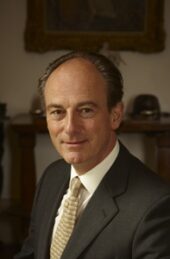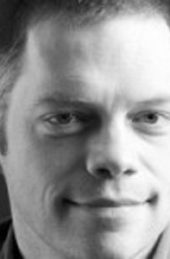William, your new book The Romantic is drawn on a very broad historical and geographical canvas. How did you go about researching it? Did the pandemic make some research difficult?
One of the reasons I set the book in the nineteenth century is that I have this great, pretty much unused, store of knowledge about the Romantic Poets. I spent eight years at Oxford failing to complete a doctorate on the poetry of Shelley and many years teaching the “Wordsworth and Coleridge” paper for the English Literature degree at the university. Consequently, the early nineteenth century was very familiar to me – or at least its literary manifestations. And, a further advantage of writing a PhD thesis is that you do learn how to look things up. The research for the novel was copious – mainly done through acquiring a small library of second-hand books, about 400 all told, on the very varied subjects required to make the novel feel authentic (history of street and domestic lighting, the development of the WC, getting a commission in the army of the East India Company, coach-and-horse transportation, brewing lager, the street-layout of Baden-Baden etc). All that was fairly straightforward. I had hoped to travel to County Cork and explore but the pandemic halted that.
Otherwise, the research proceeded as it always has for my novels. You research a lot and then you discard 95%, hoping that the 5% you select will factor seamlessly into the novel and will resonate.
I thought the dialogue in the book had a very modern, uncluttered feel, while not in any way seeming inappropriate to the nineteenth century. Was this a particular aim of yours?
This was one of the hardest aspects of the novel to pin down. I found it difficult to gain a sense of the demotic voice of the nineteenth century – so much that is written down in that era is formal and somewhat unnatural. I was given an important clue by John Fowles when he wrote that he wanted the dialogue in The French Lieutenant’s Woman to sound deliberately cod-Victorian – to add a distancing effect. So, he wrote dialogue that was distinctly stiff, over-polite, with no contractions and not, he added, “dialogue as it sounds in the novels by Fanny Burney.” So I turned to Fanny Burney and found dialogue – full of didn’ts and wouldn’ts and shouldn’ts – that seemed remarkably contemporary. Early Dickens (Sketches by Boz, The Pickwick Papers) confirmed this, as did certain intimate journals (Benjamin Robert Haydon, notably) and collections of letters (Keats and Byron, in particular). My general conclusion was that, despite some issues of vocabulary, grammar and politesse, people in the nineteenth century, chatting casually to each other, would sound pretty much as we do today.
Your protagonist Cashel Ross is told that he lived his life following his heart rather than his head. It seems you leave it to the reader to decide, given how his life turned out, if that was a good thing or not. What do you think and do you also follow your heart?
I think the key question is this: is having a “romantic” nature a blessing or a curse? The answer is, unsurprisingly, a bit of both. You experience life more intensely, perhaps, if you’re romantically inclined – but if you only “listen to your heart” it can lead you astray and cause blunders and reversals that may be irrecoverable. I think that, in the end, Cashel realises that it was, just about, more of a blessing. His feelings for Raphaella endured because he was a romantic, and his reflections at their last meeting in Baden-Baden are not rueful or frustrated – they’re maybe even serene and grateful.
As for myself, I think I am a bit of a romantic but I do listen hard to the voice of reason, as well.
The Romantic is a novel which can be described as picaresque. Among previous novels of yours I’ve read and much enjoyed, Any Human Heart and The New Confessions too can be similarly described. What attracts you to this style of fiction and can we look forward to more in this vein?
I think it’s a consequence of writing a whole-life novel, as I’ve described the four (or five) I’ve written. When you write a whole life you have to consider life’s haphazardness, its random nature, and not impose some kind of strict narrative template on it. To be true to life you have to acknowledge its fundamentally picaresque nature. There is no pattern in the carpet, one is buffeted by fate, by good luck and bad luck. The best laid schemes of life “gang aft agley” and a realistic portrait of any life ought to reflect this.
As to whether I’ll write another whole-life novel, I’m not sure. They are hard work – and very long, inevitably. Never say never, however. I have an idea for a novel that covers three generations of a family that is slowly taking shape. Perhaps that will be my swan-song to the genre.
Did any other writers or books have particular influence on you when writing The Romantic? I could not help being reminded of another picaresque book about another Irish adventurer, Thackeray’s Barry Lyndon.
The writer that lurks behind The Romantic is Stendhal, principally. Stendhal pointedly identified himself as a “romantic” personality and regarded it as a form of disease. He felt his life had been a constant “Chasse au Bonheur” – largely in vain – and that it would have been better for him all round if he’d not been born with such a nature. He wrote a remarkable fake biography (a thinly disguised autobiography, in fact) called La Vie de Henry Brulard – an astonishingly modern work in tone – it seems almost contemporary. Also, it is full of little maps and plans and sketches. The sketches in my novel are a clear homage to Stendhal. Equally, my account of the Battle of Waterloo is a nod to Stendhal’s description of the battle in La Chartreuse de Parme. Intriguingly, Stendhal met Byron in Venice and disliked him intensely. He thought Byron was a monstrous snob.
A rather frivolous question but your description of beer-making in the book is extremely detailed. Have you ever brewed beer yourself?
Actually, no. I needed Cashel to become successful in America – but I’m not sure why I elected to make him a brewer. I had to do copious amounts of research.
I found Cashel Ross an extremely likeable character. If you have preferences among the numerous heroes in your books where does Cashel rank if you were to give a top 5?
This is not something I’d like to do, to be honest. I feel all my protagonists in my various novels are fully three-dimensional characters. But they are, in the end, my creatures – they don’t have a life of their own. They’re not like friends I can rank. I’m very fond of some of my subsidiary, minor characters, however. I can imagine an extra-novel life for them. Perhaps because I haven’t given them the starring role they deserve. Am I contradicting myself?
You have a wonderfully diverse back catalogue, with all books I believe being one off novels, with the technical exception I suppose of your contribution to the James Bond series. Have you ever contemplated writing a series of some sort?
I have written series in my short stories. Bethany Mellmoth, Edward Scully and Yves Hill all have several stories in which they feature. I’ve also written a play about Yves Hill and made a short film about Bethany. I am contemplating writing another two sequels to my WW1 spy novel Waiting for Sunrise. If I did, the trilogy would cover 1913-1919 and be a 1000 page epic dealing with various aspects of the Great War and its prelude and aftermath. This may well come about in my dotage!
By the way, I’m very proud of my James Bond continuation novel, Solo. It can stand on the shelf with all my others, head held high.
Do you find that new book ideas come to you easily? When you are contemplating a new work do you have to choose between competing ideas or has the next proposition been settled in your mind for a while?
I seem to have a fairly regular but not extravagant flow of ideas. Some are ideas for short stories, or movies, or plays. Novel-ideas are rarer – maybe 2 or 3 a year. I write them all down in a notebook when they occur. So, when I finish a novel, I have at least 2 or 3 ideas for my next novel, circling overhead like planes waiting to land. One of them – the cuckoo in the nest – comes to dominate my mind and thoughts and gets selected as the next novel. But I don’t reject the rejected ones. All preserved for a rainy day. Irons in the iron-crowded fire.
Is there a yet to be filmed novel you’ve written that, if the stars aligned and the budget was limitless, you’d like to see made?
There are many. I have written screenplays of my novels An Ice-Cream War, Ordinary Thunderstorms, The Blue Afternoon and Waiting for Sunrise. All yet to be made into multi-episode TV series. I’ve also written a movie version of Brazzaville Beach – not to mention the dozen or so other screenplays I’ve written based on other books or narratives that never got made. This is the lot of a screenwriter’s life. Some twenty of my screenplays have been made. And there are probably another forty that haven’t. One out of three is a surprisingly good hit-rate in the screenwriting business. I’ve been very lucky. However, I think The Blue Afternoon is the one I’d most like to see filmed. I think its themes – passionate love story, murder mystery, war and romantic redemption -would work particularly well and powerfully on screen.
You’ve been hugely creative not only as a novelist, but with plays, screenplays, film direction and painting – with a bit of help from Nat Tate. What can we look forward to next?
One thing you can definitely look forward to is an opera, you may be surprised to hear. I’ve written the libretto to a full-length (chamber) opera with the music supplied by the eminent modern classical composer Colin Matthews. It’s based on a Chekhov short story, A Visit to Friends, (that’s also the title of the opera) and my Chekhovian play Longing. It’ll receive its world-premiere at the Aldeburgh Music Festival in 2025. It seems a long way off but I’m assured that is speedy progress in the opera world.
William Boyd is a bestselling novelist, screenwriter and the author of The Romantic. Mark Ellis is the author of the DCI Merlin series.







